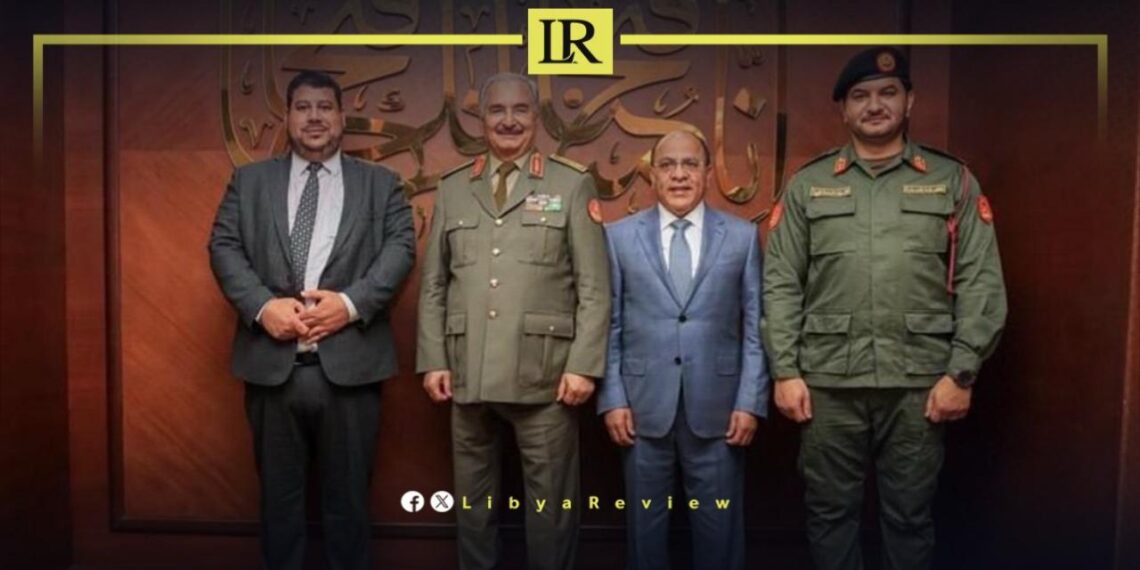The Commander-in-Chief of the Libyan National Army (LNA), Field Marshal Khalifa Haftar convened with Masoud Moussa, the Acting Chairman of the National Oil Corporation (NOC), and Mohamed Bin Shattwan, the Chairman of the Management Committee of the Arabian Gulf Oil Company, at the General Command headquarters.
The meeting centered on pressing issues and challenges confronting the oil sector, a crucial pillar of Libya’s economy.
Haftar emphasised the critical importance of preserving this vital and sensitive sector, which stands as the near-sole source of sustenance for the Libyan people. He highlighted the necessity for intensified efforts to develop the oil industry to serve all Libyans, ensuring a decent life for the population.
This discussion underscores the strategic significance of Libya’s oil sector, not only as an economic lifeline but also as a key to securing social stability and improving living standards across the nation. Haftar’s focus on developing and protecting the oil industry reflects a commitment to leveraging Libya’s natural resources for the broader benefit of its people, amidst ongoing challenges and complexities in the country’s landscape.
By addressing these challenges head-on, the meeting between Libya’s military leadership and oil sector heads marks a pivotal step towards enhancing the oil industry’s resilience and its capacity to contribute to national prosperity.
Libya has been in chaos since a NATO-backed uprising toppled longtime leader Muammar Gaddafi in 2011. The county has for years been split between rival administrations.
Libya’s economy, heavily reliant on oil, has suffered due to the ongoing conflict. The instability has led to fluctuations in oil production and prices, impacting the global oil market and Libya’s economy.
The conflict has led to a significant humanitarian crisis in Libya, with thousands of people killed, and many more displaced. Migrants and refugees using Libya as a transit point to Europe have also faced dire conditions.
The planned elections for December 2021 were delayed due to disagreements over election laws and the eligibility of certain candidates. This delay has raised concerns about the feasibility of a peaceful political transition.
Despite the ceasefire, security remains a significant concern with sporadic fighting and the presence of mercenaries and foreign fighters. The unification of the military and the removal of foreign forces are crucial challenges.


